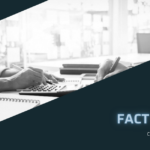Autonomy to make your own investment decisions
Some people don’t want a pension company deciding how their pension savings are invested – they want to control where their money goes and how it grows. For people wanting to have autonomy to make their own investment decisions with their retirement savings, a Self-Invested Personal Pension (SIPP) may be an alternative solution.
A SIPP is a type of pension called a ‘defined contribution pension’ that allows you access to a wider choice of investments when it comes to saving for your retirement. It works in a similar way to a standard personal pension. The main difference is that with a SIPP ‘wrapper’, you have more flexibility with the investments you can choose.
MORE FLEXIBILITY
The new pension freedoms introduced in 2015 mean that from age 55 (increasing to 57 from 2028), you can take money out of your pension, normally 25% of which is tax-free and the rest being taken as income, which will be subject to Income Tax.
You can choose what investments you want to put your savings into, and keep control of your savings. A SIPP can also be suitable if you want to consolidate all of your pensions into one pot before you retire, or if you want to keep your money invested after you retire so that you can draw down an income from it.
INVESTMENT OPTIONS
If you are looking to put yourself in control of your financial future and give yourself the freedom to select the investments you think will deliver the best returns, these are some of your investment options:
STOCKS AND SHARES
- Investment trusts listed on any stock exchange
- UK government bonds, plus bonds issued by foreign governments
- Open-ended investment companies which are recognised by the Financial Conduct Authority
- Gilts and bonds
- Exchange-traded funds traded on the London Stock Exchange or other European markets
- Bank deposit accounts including non-sterling accounts
- Commercial property
- Real estate investment trusts listed on any stock exchange
- Offshore funds
TAX FACTS
A SIPP benefits from the normal tax relief available to pensions. To add £100 to your pension, you pay in £80, and HM Revenue & Customs will add basic rate tax relief at 20%. If you pay higher or top-rate tax, you can claim back the remaining tax relief through your tax return, meaning you can benefit from up to 45% tax relief. If you own commercial premises, SIPPs can offer valuable tax relief.
You can ‘sell’ your premises to the SIPP and free up funds to reinvest, and there are also Inheritance Tax benefits. SIPPs can also be set up under trust, meaning that the legal ownership of your pension assets is separated from your other non-pension assets. This means that the fund on your death can normally be paid to a beneficiary without incurring Inheritance Tax. If you die before
age 75, there is generally no Income Tax liability on any money your beneficiaries take out of the pension they inherit. However, if you die after age 75, your beneficiaries will pay Income Tax on any money they take out.
EXPERIENCE COUNTS
SIPPs may be appropriate if you have experience of investing and are completely comfortable making your own investment decisions. Some investments that you can place in a SIPP may be risky and not suitable for you.
If you don’t have experience, a stakeholder or personal pension may be more suitable for you. You may have a more limited choice of investments, but you could choose a fund that has a range of assets in it, rather than picking your own. SIPPs can also be more expensive, and their charges could eat into your returns if you only have a small amount invested. That’s why SIPPs are more suitable for people with larger amounts of savings.
CREATING A VISION OF YOUR IDEAL RETIREMENT
We can help you create a vision of your ideal retirement and calculate how much money you’ll need to fund it. It’s essential to obtain professional financial advice before you make any decisions. To discuss your retirement requirements, please contact us.










Follow us